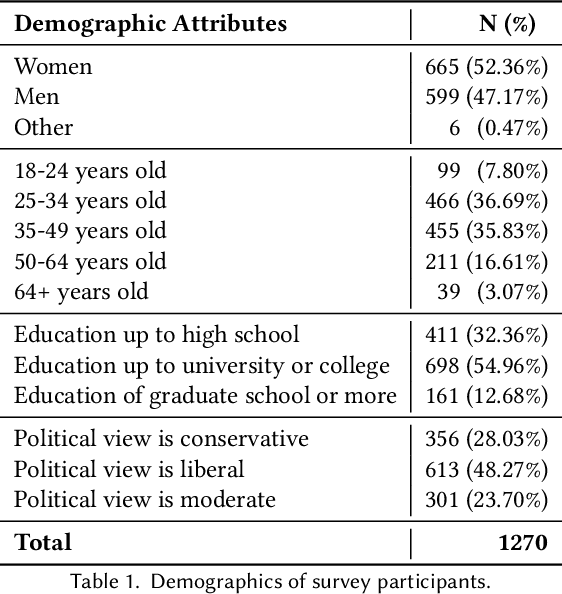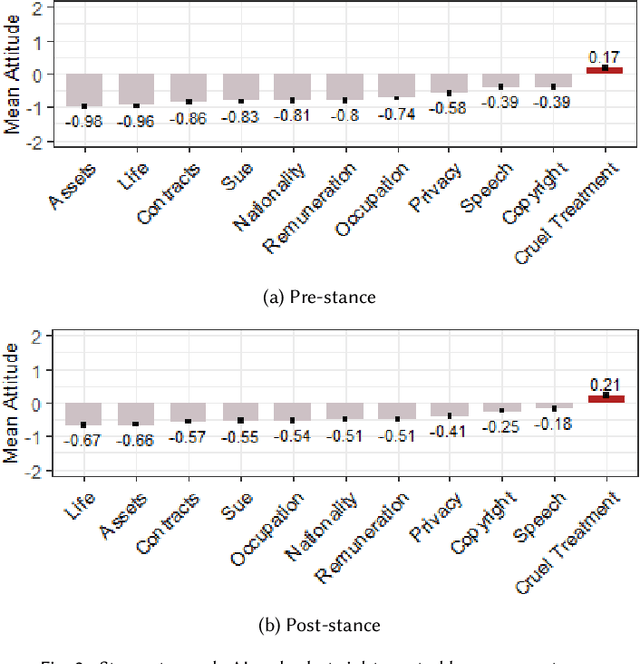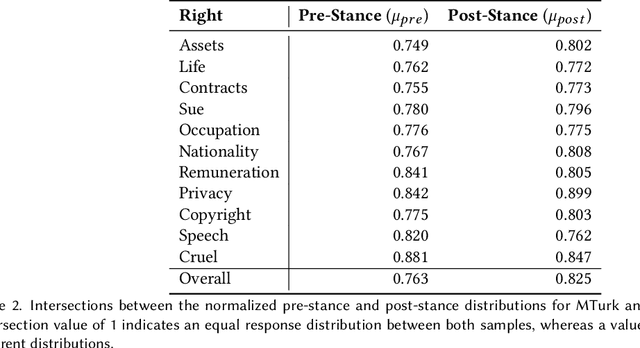Seungho Ryu
Collecting the Public Perception of AI and Robot Rights
Aug 04, 2020



Abstract:Whether to give rights to artificial intelligence (AI) and robots has been a sensitive topic since the European Parliament proposed advanced robots could be granted "electronic personalities." Numerous scholars who favor or disfavor its feasibility have participated in the debate. This paper presents an experiment (N=1270) that 1) collects online users' first impressions of 11 possible rights that could be granted to autonomous electronic agents of the future and 2) examines whether debunking common misconceptions on the proposal modifies one's stance toward the issue. The results indicate that even though online users mainly disfavor AI and robot rights, they are supportive of protecting electronic agents from cruelty (i.e., favor the right against cruel treatment). Furthermore, people's perceptions became more positive when given information about rights-bearing non-human entities or myth-refuting statements. The style used to introduce AI and robot rights significantly affected how the participants perceived the proposal, similar to the way metaphors function in creating laws. For robustness, we repeated the experiment over a more representative sample of U.S. residents (N=164) and found that perceptions gathered from online users and those by the general population are similar.
 Add to Chrome
Add to Chrome Add to Firefox
Add to Firefox Add to Edge
Add to Edge